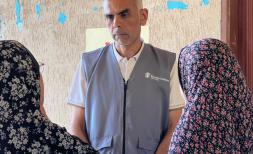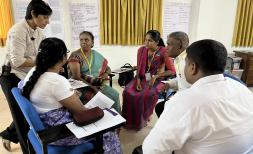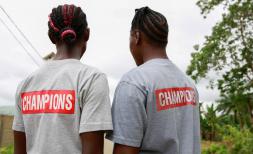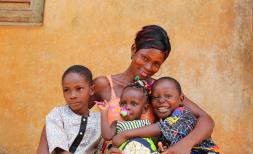Changing society’s mind-set: Corporal punishment is never ok
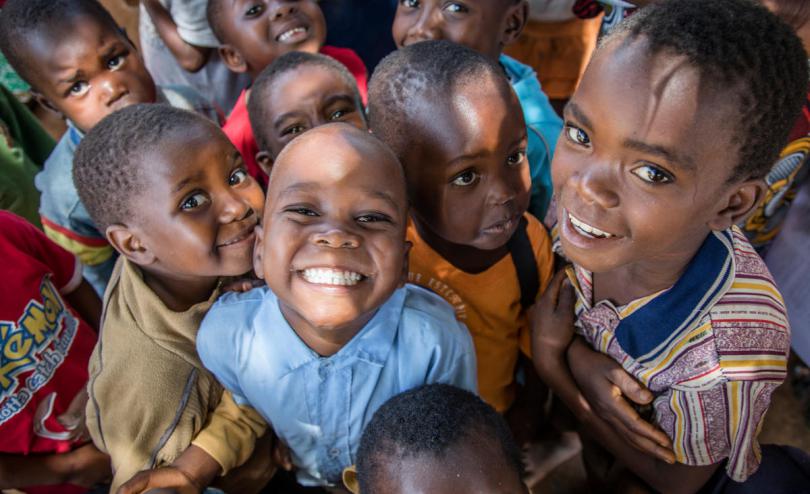
Children attend a Save the Children supported preschool in Zomba district, Malawi. Jonathan Hyams / Save the Children.
One day, several years ago, a South African father came home to find his son watching pornography online. The father flew into a fit of rage and battered his son so badly that he ended up in hospital. The case went to court where the father argued that his actions should be considered “reasonable chastisement”, which was still permitted then under law.
But what is reasonable? The Judge ruled that this case was in fact common assault, and he effectively stopped the use of “reasonable chastisement” as a defence for violence against children. Today, South Africa is one of only 65 countries where corporal punishment is banned in all settings.
The ruling was deeply controversial at the time because the spanking of children by their parents is common here. I am a South African, and most of us grew up with corporal punishment both in the home and at school, and many still view this as an effective and essential form of discipline.
I remember being at school in the 1980’s when “six of the best” was the ultimate threat. If you stepped out of line the principal would call you to his office and ask you to select a cane from a box. They were of different lengths and weights. Then you bent over, and he would whip you once, walk slowly around the room, and then do it again and again and again and again and again. At the end you needed to say: “Thank you, Sir” and walk upright to the door (after which you sprinted to the bathroom and locked yourself in a cubicle so you could cry without anyone seeing). This was considered normal back then.
What we know now about child development has evolved. There is ample evidence that physical and humiliating punishment can be harmful to children’s development and perpetuates inter-generational abuse. Children who grow up with corporal punishment in the home and at school learn early and powerful lessons about the use of violence to solve their problems and dominate others. There is also evidence of significant economic and social implications.
Nevertheless, change is difficult because many adults struggle with the dichotomy of discipline versus abuse. They believe that discipline is delivered by caregivers and teachers who love and care for children, while abuse is inflicted by cruel and uncaring people. But research shows that this is not true, and that in most cases physical punishment is physical abuse in intent, form, and effect.
Many of us who experienced corporal punishment as children also tend to view it as an appropriate response to parent-child conflict today. This is a belief held around the world. As an example, in England and Northern Ireland it is still legal for a carer or parent to discipline their child physically if it is a "reasonable" punishment. In doing so we normalise and legitimise things that have no place in our society.
When a country bans corporal punishment, it is a victory for child rights. It sends a clear message to caregivers and policy makers around the world, that we no longer tolerate violence against children.
The International Day to End Corporal Punishment is on 30 April and Save the Children will be calling for urgent prohibition in all settings. In countries where this has already been achieved, we will call for the continuous monitoring of the law’s enforcement as well as commitments to supporting families.
When the Apartheid regime collapsed here in South Africa, and Nelson Mandela became President, one of the first things he did was to ban corporal punishment in the public sphere (it took a further 20 years for a universal ban). Let us all follow his example; we owe it to our children to do better.
You can help by sharing this blog with your network and creating general awareness of the negative effects of corporal punishment, including among children.
